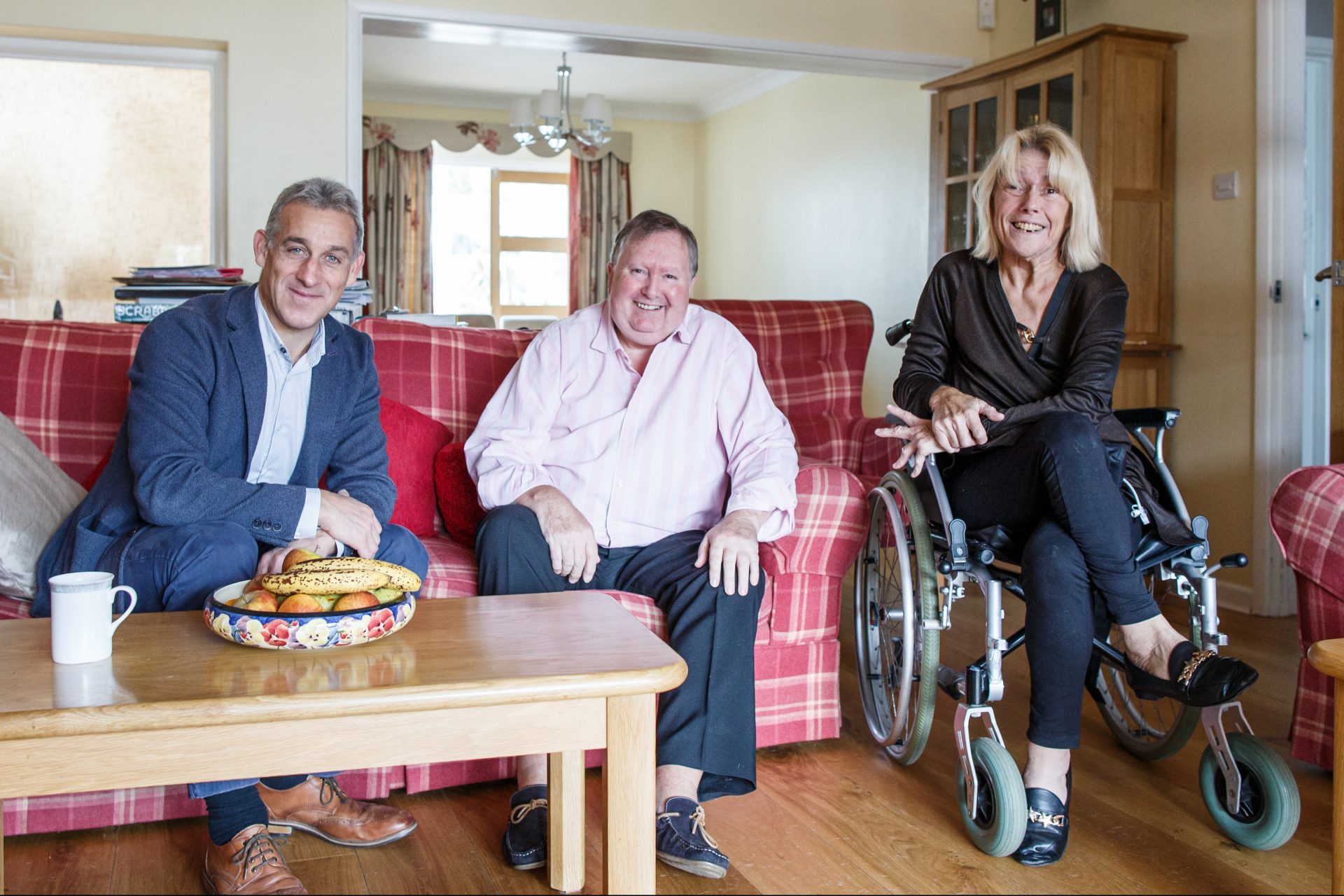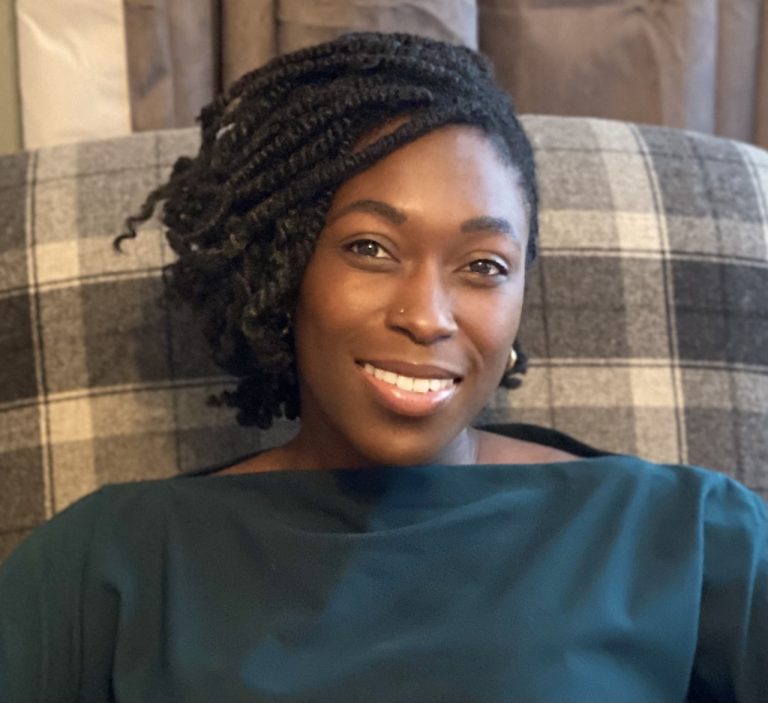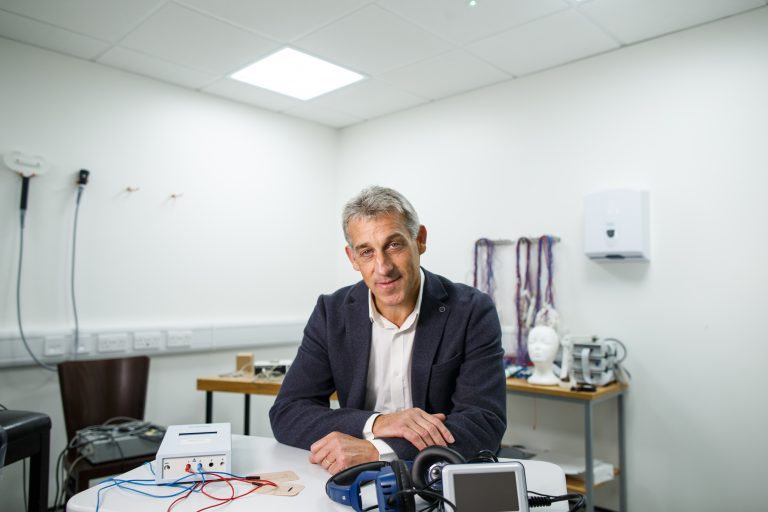
This new Parkinson’s Centre for Integrated Therapy will be using Kent campus facilities and new ground-breaking research led by Professor David Wilkinson.
New treatments that could give hope to thousands worldwide will be at the forefront of a new Parkinson’s Centre for Integrated Therapy, which will be based in existing facilities on the University’s Canterbury campus.
These include the use of ground-breaking new research led by Professor David Wilkinson that focuses on stimulating the balance organs of the inner ear to improve brain health.
Delivered through a new partnership between national charity Parkinson’s Care and Support UK and the University, the Centre will offer innovative forms of neurostimulation along with free access to long-standing, non-drug therapies such as physiotherapy and psychotherapy when it opens in Spring 2022.
An estimated 2,000 people will visit the Centre during its inaugural year, with its integrated approach filling a much-needed gap in the support options currently available. Covering clinical, research and education delivery, the Centre will also serve as a community hub for people with Parkinson’s and their families.
Pioneering research into therapeutic neurostimulation at the University – using headsets that stimulate the inner ear from the outside – has already shown huge potential benefits. Volunteer participants have so far reported better mobility, memory, increased independence and reduced anxiety and depression after short periods of self-administered, home-based treatment.
Ahead of launching, Parkinson’s Care and Support UK and the University need to raise £400k to support the vital work of the Centre, with the funds enabling free access to the stimulation therapy and to established non-drug therapies that help reduce the disabling symptoms that Parkinson’s drugs struggle to reach. There are a number of ways to support this appeal, with more information available here.
Elizabeth Gordon, Chief Executive of Parkinson’s Care and Support UK, said: ‘Parkinson’s disease is the fastest growing neurological condition in the world, with diagnosis rates set to double by 2065. There is no cure for Parkinson’s and so it is paramount that more efforts are made so that people can live better for longer. I’m passionate about improving the quality of life for people living with the condition – the new Centre will be at the heart of this, and ensure that as many people as possible have access to a service that could have truly life-changing benefits.’

Professor David Wilkinson, a pioneer in therapeutic brain stimulation, said: ‘We know that demand for non-pharmacological therapies is high but they are difficult to access and rarely available together. My hope is that the new Centre offers something new that can make a genuine difference to the lives of people living with Parkinson’s, and hopefully pave the way for ground-breaking treatments to become part of the mainstream.’

Dr Mohamed Sakel, NHS Consultant in Rehabilitation Medicine, said: ‘Over the last decade, I have seen numerous patients of mine improve with non-invasive neurostimulation after the effects of their specialist rehabilitation programme and drug regimen have plateaued. After just a few sessions I have seen substantial improvements in mobility, mood, sleep and overall quality of life. I strongly support the commissioning of this new Centre which, I believe, will herald a new era of Parkinson’s treatments and provide an invaluable service to people with Parkinson’s disease far and wide.’




